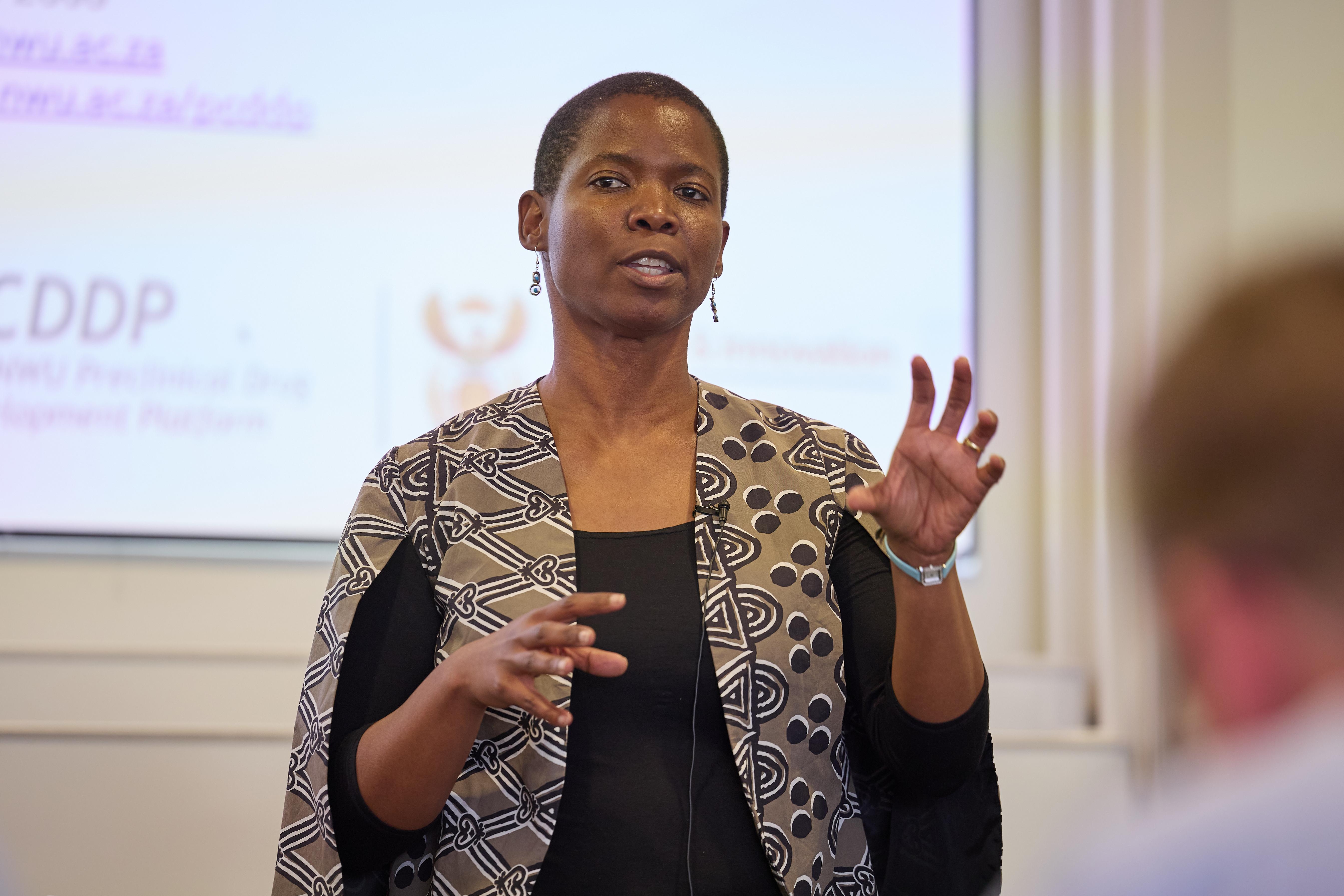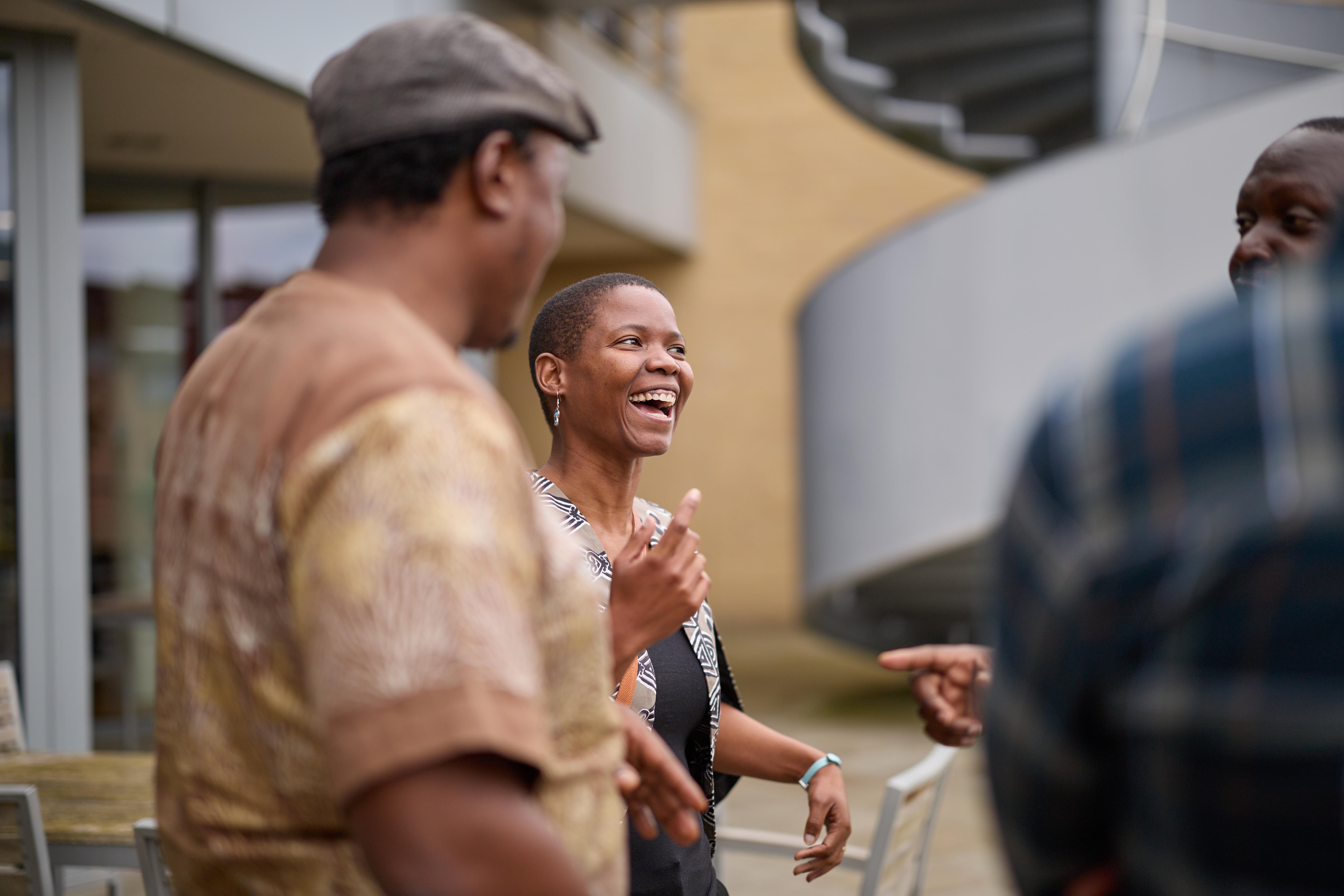Translational research in Africa to address lack of genetic diversity when testing human-drug response
In this series, we are highlighting some of our Africa-Oxford Health Innovation Platform (AfOx-HIP) Fellows. Each one is an outstanding African innovator building a high-growth, science-based venture to address pressing health challenges in Africa. We spotlight how they are developing bioscience start-ups in nascent deep science ecosystems, and how nurturing translational research on the continent is central to offering commercialisation pathways for these impact-led solutions.

The Context
Professor Rose Hayeshi is Director of the DSI/NWU Preclinical Drug Development Platform (PCDDP) and was an Africa Oxford Health Innovation Fellow in 2022. The PCDDP is a hosted research entity in the Faculty of Health Sciences, at North-West University in South Africa. It has an academic arm and a service delivery arm. The academic staff conduct research and supervise post-graduate students, but also participate in contract research.
The PCDDP functions as a national preclinical testing platform. It has established the infrastructure and skills set required to perform various in in vivo studies in rodent models, attracting product developers (drugs, vaccines, phytomedicines) to use of the facility.
The ultimate aim is to create an infrastructure to enable South Africa to play a significant role in the production of pharmaceutical drugs and phyto-medicines, so that novel pharmaceutical products and biologicals, such as vaccines, are developed and produced locally.
The Problem
After potential new drug molecules are discovered, they must go through pre-clinical animal studies, before it is safe to run human clinical trials. Animal trials are used to predict human-drug response, refine clinical trial protocols, reduce development times, and increase the probability that drugs will be used safely and efficaciously in the clinic. Predictions from in vitro data are not always accurate as they do not fully replicate the physiology of the whole body.
However, these animal trials don’t capture the genetic diversity of eventual patients. We know that genetic make-up affects the way a person responds to and metabolises drug molecules, but we only test drugs on a minority of genetic profiles.
The Solution
Rose is working on a specialised tool for drug development that better represents the wide genetic diversity of African populations. Rose’s project aims to develop additional services to offer at PCDDP to add to its competitive advantage internationally. Rose’s team is still working on experiments to develop and demonstrate the translational value of the tools before they can be delivered as a commercial service.

The Funding
Rose has received funding from the North-West University and the Bill & Melinda Gates Foundation to develop and validate her drug development tools. Rose is very keen that the tools are not only used in house to develop new drugs, but are available as a service to other researchers to broaden their usage.
The experiments performed will be in collaboration with African drug discovery researchers. We know that many African researchers want to make their work relevant to the continent, but Rose is concerned that African researchers may not be able to afford specialised drug development tools for African populations. One of the aims of PCDDP is to be an institution that is accessible to all scientists who may require such research services at reasonable cost. She would consider partnering to make it more widely available to researchers.
The Challenges
One challenge has been identifying the people with the right expertise and figuring out how to collaborate, when Rose’s team don’t have all the right experience in house. She has learned how to network, but sometimes struggles to find alignment, when different players have different goals.
Another challenge has been “establishing a need”. What is the market for this service and who are the potential customers? The AfOx Health Innovation Platform encouraged Rose to think about human-centred design and talk to her potential customers.
The Future
One aspect that interests Rose is the possibility that we could use tools which replicate genetic diversity to predict potential diversity of human-drug response. This could improve human-drug responses of African populations, even if we can’t capture full genetic diversity in clinical trials. This could allow more comprehensive and ethical safe data, and therefore better outcomes for African populations, without adding complexity to already expensive clinicals trials.
Learn more about other successful AfOx Innovation Fellows here
